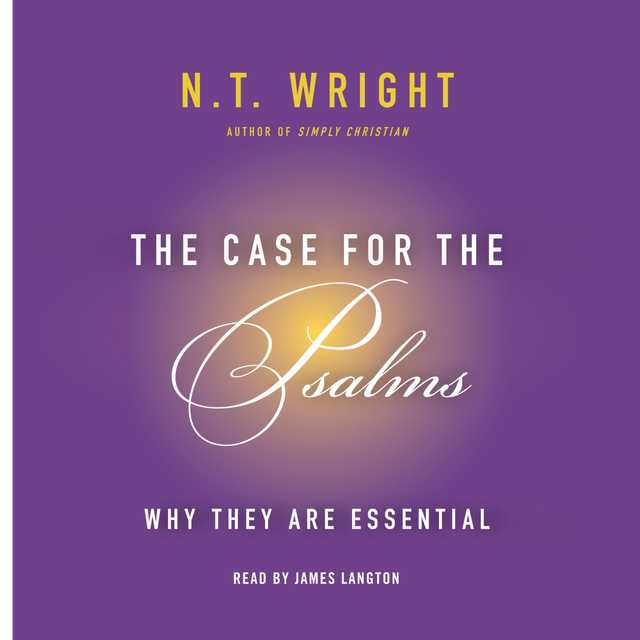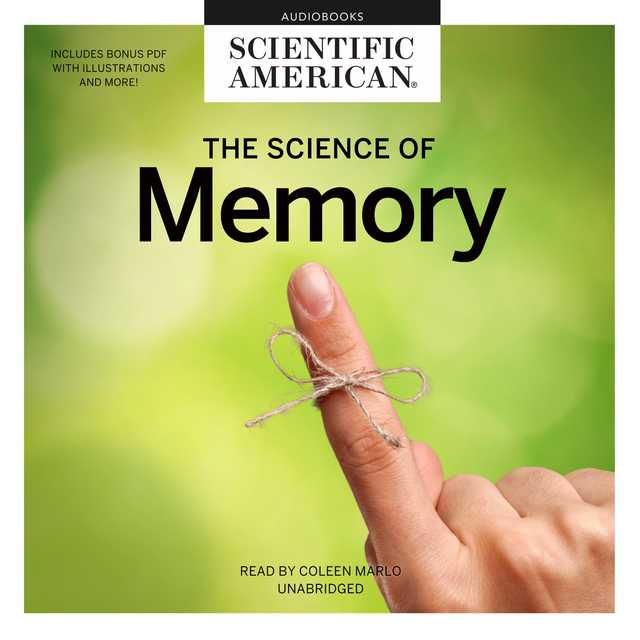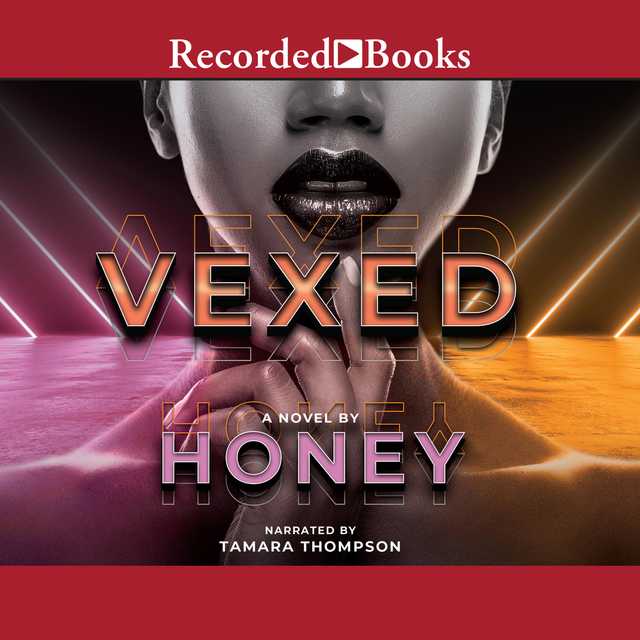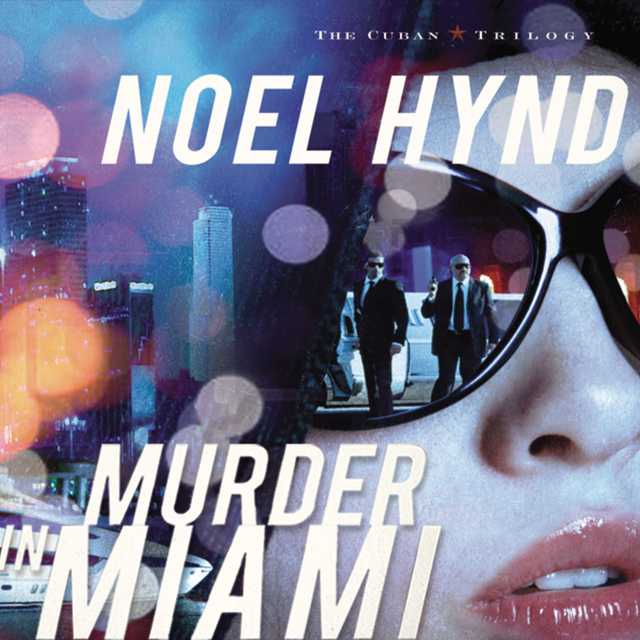The Case for the Psalms Audiobook Summary
One of the world’s most trusted Bible scholars, N. T. Wright turns his attention to the central collection of prayers that Jesus and Paul knew best: the book of Psalms. Wright points out that the Psalms have served as the central prayer and hymnbook for the church since its beginning–until now. In The Case for the Psalms, Wright calls us to return to the Psalms as a steady, vital component of healthy Christian living.
Reading, studying, and praying the Psalms is God’s means for teaching us what it means to be human: how to express our emotions and yearnings, how to reconcile our anger and our compassion, how to see our story in light of God’s sweeping narrative of salvation. Wright provides the tools for understanding and incorporating these crucial verses into our own lives. His conclusion is simple: all Christians need to read, pray, sing, and live the Psalms.
Other Top Audiobooks
The Case for the Psalms Audiobook Narrator
James Langton is the narrator of The Case for the Psalms audiobook that was written by N. T. Wright
N. T. Wright is the former Bishop of Durham in the Church of England and one of the world’s leading Bible scholars. He serves as the chair of New Testament and Early Christianity at the School of Divinity at the University of St. Andrews as well as Senior Research Fellow at Wycliffe Hall, Oxford University. He has been featured on ABC News, Dateline, The Colbert Report, and Fresh Air. Wright is the award-winning author of many books, including Paul: A Biography, Simply Christian, Surprised by Hope, The Day the Revolution Began, Simply Jesus, After You Believe, and Scripture and the Authority of God.
About the Author(s) of The Case for the Psalms
N. T. Wright is the author of The Case for the Psalms
More From the Same
- Publisher : HarperAudio
- Abraham
- American Gods [TV Tie-In]
- Dead Ringer
- House of Sand and Fog
- Prey
The Case for the Psalms Full Details
| Narrator | James Langton |
| Length | 4 hours 2 minutes |
| Author | N. T. Wright |
| Category | |
| Publisher | HarperAudio |
| Release date | September 03, 2013 |
| ISBN | 9780062283801 |
Subjects
The publisher of the The Case for the Psalms is HarperAudio. includes the following subjects: The BISAC Subject Code is Christian Life, Religion, Spiritual Growth
Additional info
The publisher of the The Case for the Psalms is HarperAudio. The imprint is HarperAudio. It is supplied by HarperAudio. The ISBN-13 is 9780062283801.
Global Availability
This book is only available in the United States.
Goodreads Reviews
James
October 19, 2013
About 10 years ago I read an article on N.T. Wright on the Christianity Today site. The article, was published when Wright was dean of Lichfield Cathedral, and I remember Wright making a comment that if you want to understand his theology, you have to see him at worship.This is Wright at worship. In this book he commends the Psalms as a prayer book and as something that gives shape and depth to corporate worship. His context as an Anglican theologian has meant that he is part of a communion that regularly reads the Psalms. He also reads the Psalms daily as part of his devotional practice. So while the title suggests that Wright is 'making the case for the Psalms' for churches and Christians who have let them fall into disuse, I found this book to be a personal account of his devotional life. Wright argues that inhabiting the Psalms means marking time, space, and matter differently than our post-enlightenment culture does. Of course as a NT guy, N.T. has a lot to say about how Christ fits into the story, and hopes that are sketched in the Psalms (so does the New Testament), but he opens up a way to reorient ourselves around the Psalms and hear their cumulative message.I especially appreciated the later chapters where Wright has talked about the joy he's experienced in his life reading various Psalms and hearing God speak to him through them. Great stuff!
B.J.
December 11, 2019
I love worship. I love modern worship like United and Jesus Culture, I love traditional hymns like Amazing Grace and A Mighty Fortress is Our God. But most of all, I love the Psalms. It wasn't long before I was able to talk, and probably before I was able to read, that my grandmother began pushing me to memorize them. Long before I was putting books like Hebrews, James, and 1 Corinthians to memory, I had already learned dozens of the Psalms thanks to her influence. Even when she was nearing the end of her days and was losing both speech and memory, she could still flawlessly quote along with me those Psalms that were nearest and dearest to her heart.I say that to show that I am probably a bit biased in claiming that this is one of the best books I've read all year. NT Wright is always a great, thought-provoking, mind and heart challenging read. This time he has done one better. He has challenged me to get back to those Psalms. He rightfully argues that the Psalms should be a capstone in the worship life of any believer and church community. I fully agree but have to admit that I haven't been giving them the attention they deserve. The best compliment a person can give a book is to say that it has changed their life. Well, I can say that this book has changed (and greatly enhanced) my devotional life over the past couple weeks and I can only hope and pray that this is a change that will stick. I would strongly recommend this book to anyone and everyone.
Julie
October 15, 2020
A wonderful little book that really makes you look at the psalms in a new way. Highly recommended.
Jeff
November 06, 2013
This little book is an outstanding read in a couple of ways. Wright, for those who don't already know, is one of the world's most compelling and surely that most recognized New Testament scholar. In this he has written a book on the Psalms that draws upon the biblical worldview that he has articulated so well for his readers in his various volumes on Jesus, Paul and NT origins. In its own understated way the book makes clear how the ongoing life of the Church in worship is enriched and best understood by recognizing and rejoicing in its place in God's story even now still being worked out as we move hopefully into the future. Wright shares personal stories in a few spots and gives an entire chapter to such stories which provide great illustration of how various Psalms can speak into our lives at various points in time. This makes a book the most personal of the many that Wright has written and perhaps a good one to read before plunging into his upcoming multi-volume work on Paul.
Marc Sims
June 16, 2019
3.75 stars. I have a love/hate relationship with Wright. I don’t know any other writer than I can be so thrilled and frustrated by simultaneously. This book, however, was mostly thrilling. Wright is a big-picture thinker (his strength and weakness) and brings this to bear on this little book on the Pslams. He invites us to see how the Pslams reshape how we relate to time, space, and matter, then concludes with a plea for Christians and churches to make the Psalms central in worship and devotion again. The psalms cause us to rethink these three areas by: (1) introducing the tension between the past works of salvation, the future promises of new creation, and our present sufferings; God’s concept of time sees all three coinciding as right now and not contradictory. (2) God’s space is localized in the temple, but is then expanded to being found in his Torah and the hearts of those who keep His Law, anticipating a day when God’s presence will cover the whole earth. (3) Matter is made for the grandeur of God and one day the trees really will clap their hands and the mountains really will sing for joy; they do this now, but only imperceptibly.
Ray
March 20, 2020
This is a deeply personal statement of the value that recitation and study of the Psalms have for a Christian...a good spiritual guide.
Daunavan
July 13, 2021
Amazing Little BookThis book is a beautiful companion to the Psalms. While it is not too thorough, it still provides in depth analysis about why the Psalms are important and how we are invited to allow the Psalms to speak into our lives. Wright has a high value for this book of the Bible and it really shines through in every page.
Gideon
April 27, 2020
What the book does, really, is revive the narrative of the Psalms. Wright provides just a bit of historical backdrop for the Psalms in the beginning--they were first arranged during the Babylonian exile, a fact that will turn out to be quite significant--and then he goes on to outline the major themes of the Psalms. (I assure you they are very compelling themes, along the lines of how past, present, and future intersect, and also how God is at work in, and how he views, the Creation--that kind of delightful stuff!) Then, in the main body of the book, all kinds of marvelous connections are made between the Psalms and Genesis, the Psalms and the prophets, and the Psalms and the New Testament. Finally, in the last chapter, Wright gifts the reader with some personal vignettes of his own life with the Psalms. These are immensely readable if you are at all an NT Wright disciple, which, as you may have gathered, I am.One of my main takeaways is--and I leave this for your consideration whether you end up reading the book or not--that we should shape our lives around God's narrative and not try to shape God's narrative around our lives. The Psalms provide us with one of the best ways to do so. They allow us to voice every imaginable emotion and human experience--doubt, despair, jealousy, malaise, triumph, joy--and yet steer us firmly in the path of the Great Tradition, putting us in touch with past pilgrims rather than putting us out in no-man's-land with our own solutions or solutions from Post-enlightenment Western ideology. Wright makes a convincing case for having the Psalms as the very backbone of worship, both personally and collectively, and he recommends reading privately the entire book of Psalms every month or perhaps two months, and, in public, singing, reading, and praying the Psalms instead of using some cheap modern-day worship pastiche. Examples of the cheap parody worship are 1) Fundamentalist/Calvinist hobbyhorses and sentiments (Rubbish like: it's all gonna burn; the world is going to hell in a handbasket; God created the world knowing that most people and certainly all matter will not be redeemed; for all intents and purposes God is cantankerous and distant when it comes to his dealing with the world).2) contemporary church music, a phenomenon that, while it has seen a prolific output in new compositions in the last few decades, is often sadly lacking in themes from Psalms.Instead, we should return to the Psalms! I leave you with two snippets from two legends of the faith. CS Lewis said Psalm 19 is the greatest piece of poetry ever composed. Billy Graham read 5 Psalms every day and 1 chapter of Proverbs every day, thus getting through both books every month. He said the Proverbs helped him get along with people and the Psalms helped him get along with God.
Jesse
February 10, 2021
I actually found this to be one of N.T Wright's more exhilarating books. His themes of "Time, Space and Matter" work perfectly as a launching pad for exploring how interwoven the Psalms are with God's entire creative purposes. Perhaps of them all, my favorite was "Space" (Part 2) with his perennial theme of the earthly/heavenly temple being the place where God and Man meet together. It's a beautiful and engaging subject to say the least. Also, stay tuned after the "conclusion" of the book for Wright's personal expositions of how he has applied to Psalms to his everyday life, including the personal and poignant story of his father's passing in 2011. Hardly as controversial as some of his other works (I.e "The Day the Revolution Began"), but thoroughly thought-proviking.Worth reading. 4 Stars.
Logan
February 18, 2018
Despite a few minor areas (in this volume at least) where I disagree with Wright's thoughts, I found this book to be very helpful and beneficial in showing how vital the Psalms are to a Christian's life. They aren't merely a collection of ancient poetry, but capture the entirety of Man---emotions, body, and soul---his relation to God, and the complex interactions we have with the world. Wright outlines it as relating to Time, Space, and Matter and one of the sections I found particularly engaging spoke about how Christians shouldn't be afraid of matter or think of this world as a bad thing. We should glory in creation and the Creator, and be amazed at the splendor of it all. After all, it will be not simply done away with but renewed one day.This was given to me with the recommendation of my pastor, otherwise I probably would haven't read anything by Wright :)
Andy
May 16, 2020
At its heart, this is ode to the Psalms. Wright lifts back the lid of that marvelous chest we’ve seen among the furnishings of Scripture enough for us to see the vast, inexhaustible treasure inside. It’s one we’ve been invited to plunder. We’d be fools not to pack our pockets full and return with pails and wheelbarrows.
Chad
September 28, 2022
Encouraged me to read more often and more importantly start praying the Psalms.
Joshua
July 03, 2017
Definitely the best part of this book is the afterword, titled "My Life With the Psalms." Wright tells of times in his life when particular Psalms brought him hope, comfort, and wisdom. I believe one of the most powerful ways God sustains our faith—or at least mine—is through the lives and stories of other believers, and this book fits the bill.
Ethan
June 17, 2014
A book that grew out of a lecture Wright gave on the Psalms (accessible on YouTube at http://youtu.be/aSb62xG9om0 ). Wright investigates the Psalms as one who has meditated and sung them throughout his life (in the afterword he gets unusually personal with the role the Psalms played in his life) and as a scholar of Second Temple Judaism and the development of Christianity. His case for the Psalms rests in three matters: time, space, and matter. He argues that the Psalms are where God's time and ours intersect, His space and ours interlock, and matter is infused with His power and glory. He describes Israel's covenantal monotheism and contrasts that with modern views heavily influenced by Epicureanism masquerading as scientism and Platonic deism. In terms of time he shows how the Psalms anchor their understanding of the present in terms of the good things God has done in Creation and for Israel while looking forward to the fullness of God's rule and judgment. He expects the reader to return to a more concrete understanding of space in the Psalms and the claim that the Creator God, for a time, dwelt on a hill in Jerusalem called Zion, and all that implies. He speaks of a progression from the idea of God based in the Temple to access to God in the Torah; the Temple as a micro-cosmos and thus the creation as a Temple itself; he then shows how all of this leads quite nicely into first Jesus as the Temple and then Christians and the church as the Temple of the Holy Spirit. He also intends for the reader to consider a view of creation quite different than the one most have today, one in which God is not so far away but very much infusing everything with life and power, that as the Psalms say, all created things do praise God, and do so by functioning as God intended. Here again is the praise of things as they are but also the looking forward to the judgment in which all will be put to right and God's purposes for the creation restored to what He intended before the corruption of sin and death. All of this is "resurrection" in movement if not in word; as Hebrews saturated in the Psalms both Peter's and Paul's theologies do not seem as far out or strange but very much continuous with all that God clearly intended from the beginning. He also introduces the idea that God's instruction, Torah, is intended to transform a person even on a physical level, to lead to righteousness and a full life (Psalm 19, among others).He concludes with concerns about the over-emphasis in modern Christianity on hymnody to the neglect of psalmody, and encourages believers to draw strength, growth, and transformation through meditation upon and singing and praying of the Psalms. Very worthy of consideration.
Arni
September 24, 2013
This was a fast, but edifying read. It's not an academic book, but more of a sustained spiritual reflection on the general themes of the psalms. Ok, I made it sound boring. It's not. This is N.T. Wright, after all, and these are the spiritual reflections of one of the leading Bible experts of our time. So these are incredible rich reflections. The reflections, which revolve around the tension between divine and human space, time and matter as expressed in the Psalms, have a decidedly eschatological bent, which Wright fans will recognise and appreciate. The book is written in clear, easily read, mostly non-academic language and will prove, I think, a rewarding read for both regular folk and those with more theological training. I found the title a bit weird. I guess Wright couldn't publish one more C.S. Lewis-y book title, but "a case for", this is not. He laments, shortly, how the Psalms don't have a central place in the worship of many churches today, and how in those where they are still recited, only a select, "inspirational" are allowed. And he ends the book with anecdotes about how the Psalms have formed and influenced his life. Which is fine. But if you're looking for a critical analysis of how the Psalms have fallen out of favour in modern churches and how to recover an appropriate place for them, you'll be disappointed. As much as I liked this one, I kind of wish that Wright had written such a book. Someone should, especially for the liturgically challenged among us (like yours truly). All in all, a nice, short book of rich theological reflection on the Psalms written for a popular audience, but still eminently palatable to more educated readers, by one of the best Biblical scholars out there today.
Most Popular Audiobooks
Frequently asked questions
Listening to audiobooks not only easy, it is also very convenient. You can listen to audiobooks on almost every device. From your laptop to your smart phone or even a smart speaker like Apple HomePod or even Alexa. Here’s how you can get started listening to audiobooks.
- 1. Download your favorite audiobook app such as Speechify.
- 2. Sign up for an account.
- 3. Browse the library for the best audiobooks and select the first one for free
- 4. Download the audiobook file to your device
- 5. Open the Speechify audiobook app and select the audiobook you want to listen to.
- 6. Adjust the playback speed and other settings to your preference.
- 7. Press play and enjoy!
While you can listen to the bestsellers on almost any device, and preferences may vary, generally smart phones are offer the most convenience factor. You could be working out, grocery shopping, or even watching your dog in the dog park on a Saturday morning.
However, most audiobook apps work across multiple devices so you can pick up that riveting new Stephen King book you started at the dog park, back on your laptop when you get back home.
Speechify is one of the best apps for audiobooks. The pricing structure is the most competitive in the market and the app is easy to use. It features the best sellers and award winning authors. Listen to your favorite books or discover new ones and listen to real voice actors read to you. Getting started is easy, the first book is free.
Research showcasing the brain health benefits of reading on a regular basis is wide-ranging and undeniable. However, research comparing the benefits of reading vs listening is much more sparse. According to professor of psychology and author Dr. Kristen Willeumier, though, there is good reason to believe that the reading experience provided by audiobooks offers many of the same brain benefits as reading a physical book.
Audiobooks are recordings of books that are read aloud by a professional voice actor. The recordings are typically available for purchase and download in digital formats such as MP3, WMA, or AAC. They can also be streamed from online services like Speechify, Audible, AppleBooks, or Spotify.
You simply download the app onto your smart phone, create your account, and in Speechify, you can choose your first book, from our vast library of best-sellers and classics, to read for free.
Audiobooks, like real books can add up over time. Here’s where you can listen to audiobooks for free. Speechify let’s you read your first best seller for free. Apart from that, we have a vast selection of free audiobooks that you can enjoy. Get the same rich experience no matter if the book was free or not.
It depends. Yes, there are free audiobooks and paid audiobooks. Speechify offers a blend of both!
It varies. The easiest way depends on a few things. The app and service you use, which device, and platform. Speechify is the easiest way to listen to audiobooks. Downloading the app is quick. It is not a large app and does not eat up space on your iPhone or Android device.
Listening to audiobooks on your smart phone, with Speechify, is the easiest way to listen to audiobooks.














![Journey into Violence [Dramatized Adaptation]](https://speechify.com/audiobooks/wp-content/uploads/sites/29/2023/06/pr_eaudio_9781648803161_640px.jpg)















